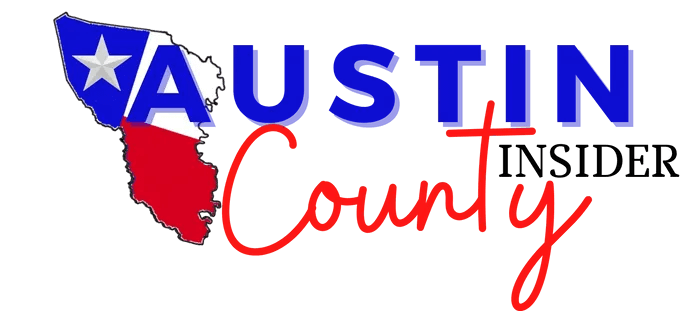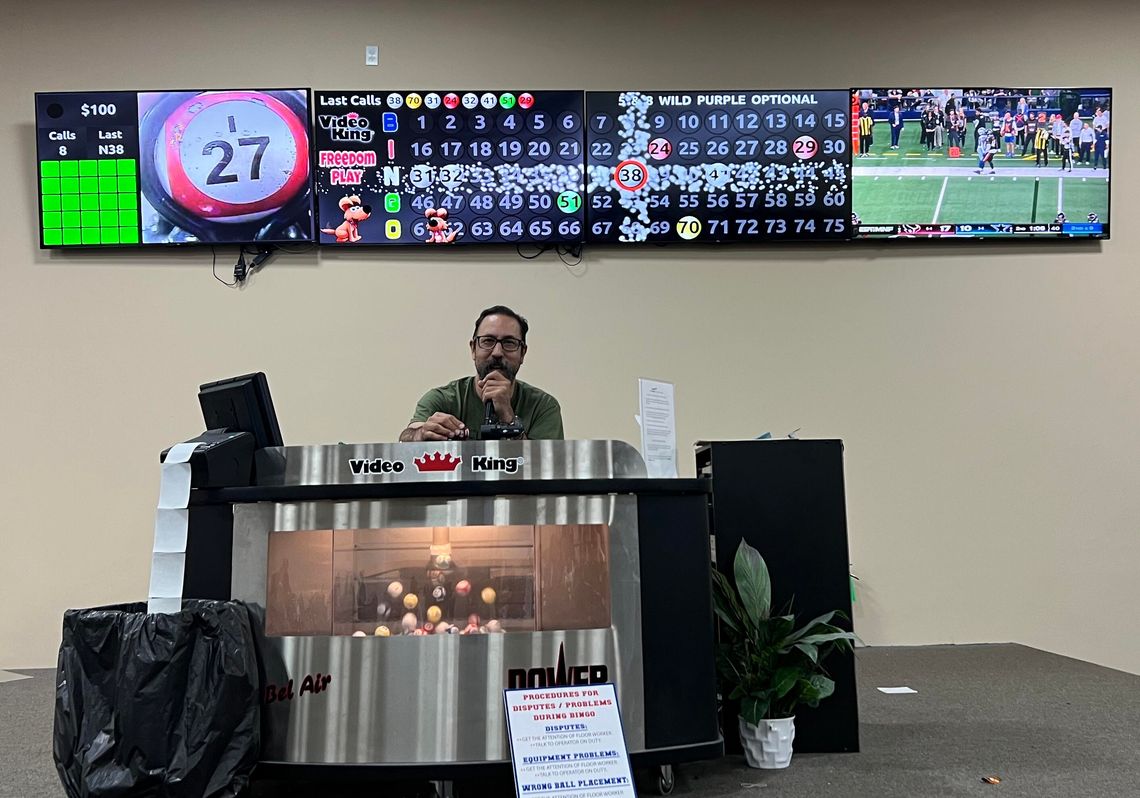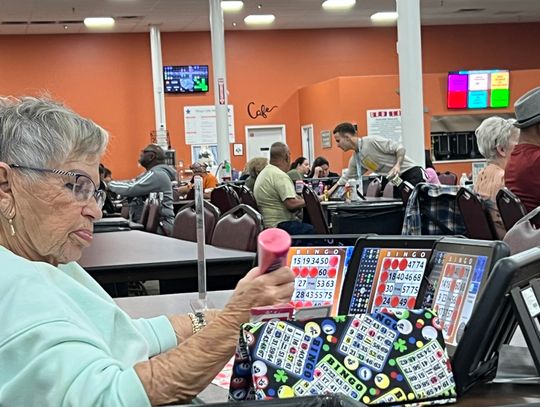Most folks think of Bingo as a game played by sweet little seniors at church socials. But there's much more to it; it has a strong social component, healthy prize money, does good for the community, and is a heck of a lot of fun. In today's fast-paced, hi-tech, depersonalized world, Bingo can bring people together to build bonds of community and friendship. And the two local games support important local causes keeping the money in Austin County.
Two new leaders at the two regular bingo spots have revitalized the games.
Sealy's American Legion Post 442 is where the action is every Monday and Tuesday night. Bingo Chairman David Littmann says he "inherited the job" when he moved to Sealy in 2016 after retiring from a career in the U. S. Army.
"When I got here, I signed up with the Legion and immediately got sucked into bingo," Littmann said. Initially, he wasn't a bingo fan but found ways to liven up the game and broaden the appeal to new players.
In 2017, bingo games were common in Austin County when Littmann took over the responsibility at the American Legion post. "Before Covid, there was bingo somewhere every night of the week in Austin County. Now we have Monday and Tuesday nights at the Legion, and Thursday at the Legion post in Wallis."
"My hall is relatively small, but we have 50-60 on a slow night, and up to 140 -- our record high attendance. People come from all over – Columbus, Rosenberg, Spring… some people like the small local halls versus the commercial ones. Many regulars play every night; some just sit and chat."
While commercial bingo halls rent players small computers that can run 60-plus cards at a time, the Legion posts and any other small-town charitable games still use paper cards that are marked with an ink dauber. Daubers have become wild and crazy coming in different colors, with neon ink, fun shapes and even glitter. Good luck charms are a regular part of superstitions; troll dolls, framed mini photos of kids, and elephants with their trunks extended upward. The quirky colorful dauber holders are also standard equipment.
The money the post makes from the purchase of the cards or other games goes back to the community in the form of donations.
"We're donating $30,000 to $50,000 per quarter to nonprofits in the community," Littmann said. The post also holds special events that benefit groups like. Sts. Peter and Paul church and the Boy Scouts. For Thanksgiving they hold a canned food drive for the local food bank.
Littman often sees how the games can affect lives, even though some of the prizes may be relatively small -- the biggest jackpots here top out at $1,199.00 since anything above that can be taxed. "We have some players on a fixed income, and they don't want to receive anything taxable," he said. "I had two of those $1,199 winners last week, and one of them went to a family I know is on very hard times. When the money can pay someone's rent for a month, or for food they need, it really means a lot."
Bingo is the oldest form of legalized gambling in Texas, tightly regulated by the Charitable Bingo Operations Division of the State Lottery Commission. The road to legalization has been rough and tumble, with emotional battles fought at the ballot box and beyond.
The State of Texas outlawed gambling in 1903. For decades, the law often looked the other way at bingo. But not always. Some zealous lawmen raided bingo parlors, even church games if cash was involved. Some cities and counties specifically outlawed Bingo.
But in 1991, the state legislature approved Article 3, Section 47 of the Texas Constitution, which specifically names charitable bingo as an exception to the state gaming laws – as long as it has been approved by voters in each county where it occurs. Today, bingo is legal in 226 of Texas' 254 counties – including Austin County.
In Texas, only religious groups, nonprofits, fraternal organizations, veterans' groups, volunteer fire departments, and volunteer EMS providers can get bingo licenses.
Commercial bingo halls such as the Rosenberg Night Bingo near Houston can hold games for groups that hold a license so long as proceeds from the bingo games are given to charities.
According to the Texas Office of the Attorney General, since the first Texas bingo licenses were issued in 1982, the game has raised more than $21 billion, with $15 billion paid out in prizes and more than $1 billion given to Texas charities.
In Wallis, American Legion Post 200 has bingo games every Thursday night. Adjutant Connie Gallaway sees the benefits of bingo to the community close up. "In a normal year, we give away about $20,000," she said.
"We give to Meals on Wheels, Boy Scouts, the local EMS system, the library, fire departments. We give to a church whose main function is an Outreach Warriors Weekend project and to many others," she said.
Gallaway took over the bingo chair job at the post last July. "I am trying to up the game," she said.
Gallaway has been a bingo fan for years, and she has had more time to enjoy the game since moving back to Wallis – her hometown. "My grandma and I go to bingo every week in Sealy. I go for the social atmosphere. We play card games before the bingo starts, sit around, eat and chit-chat. It's fun.”
"We have our regulars and our big spenders here in Wallis," she added. "We're the only post I know that still has bingo cards with sliders, and we're the cheapest one to come to. Our biggest moneymaker is event tabs – little cards we sell for $1 apiece with payoffs in certain amounts. "
There are also "horse races," usually played across single rows of the bingo card. "We play multiple different games with these crazy funny names like our new one --'Purry Pirates,'" she said.
Danny Duebbe grew up playing bingo in Belleville, where he still lives. The games played then led to a career as a licensed bingo caller. "You have to get certified through the Texas Lottery Commission," Duebbe said. "They train you on the machines."
"My parents used to take me to bingo with them 2 or three nights a week," he said. Today, as a state-licensed bingo caller, he calls the Monday and Tuesday night games in Sealy. "In 9 and a half years, I have only missed four nights," he proudly stated.
"Bingo has changed since my parents took me to play, "Duebbe said. They used to have hard cards but got rid of those during COVID. Now, in Sealy, you buy paper packs. There are paper cards in a pack and single cards for kids."
"Now the bingo machine automatically pops up numbers for you to call, and the computers play for you in the big halls. They play up to 66 cards at a time, and you just sit there and watch the caller – the computer even tells you when to holler Bingo! That's the only thing you have to do," he said.
Despite the changes, Duebbe still loves bingo.
"My wife never played bingo, before we got married two years ago, and I've got her started playing. I think bingo is great – it's something for older people to get out of the house and do, and I have started seeing a lot of younger people now. It's really great for everybody."
David Littmann agreed. "I encourage everyone to try it," he added. "Go to a small hall. Come on out and give it a shot. It's fun for all ages, it's a pretty cheap night out for a family, and it supports the community."
ABOUT THE WRITER
Susan Yerkes is an award-winning freelance writer who has played Bingo, but never won a jackpot. She has not given up.





Comment
Comments